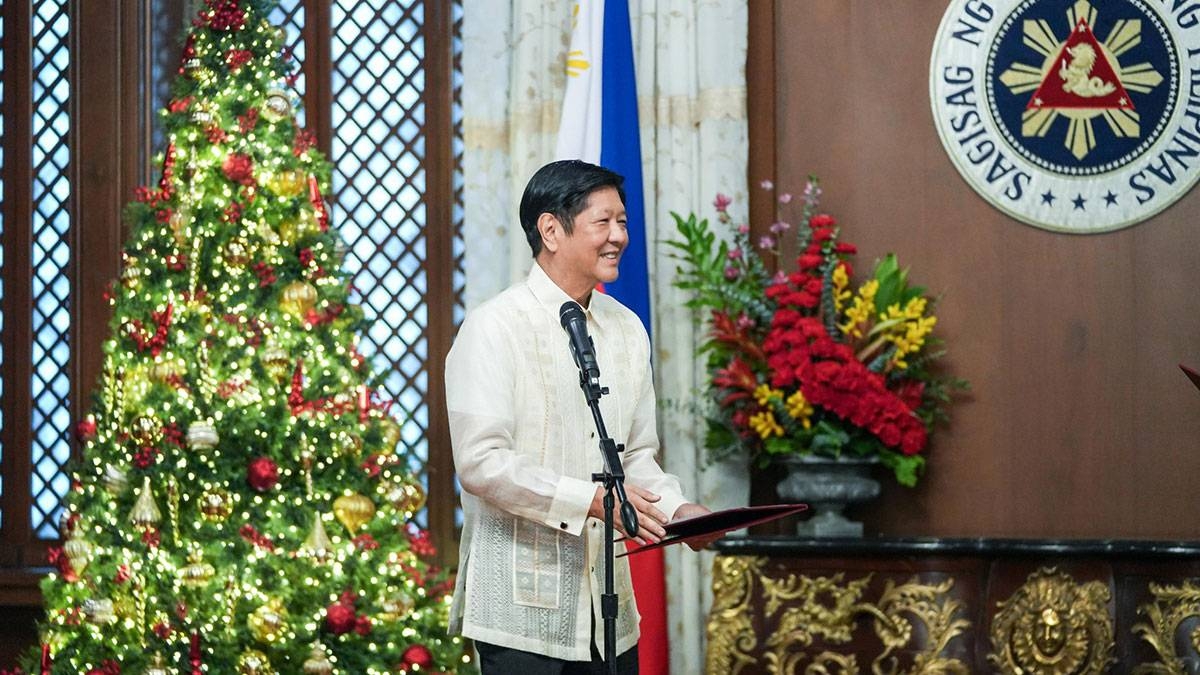In a recent turn of events, Filipino netizens have shown their support for President Ferdinand Marcos Jr. after he received strong criticism from China for his congratulatory message to Taiwan’s new leader, Lai Ching-te, following his election victory. China’s response to Marcos’ message was swift and stern, warning the Philippines “not to play with fire.”
Marcos took to social media to express his congratulations to Lai, a staunch opponent of China’s claims to Taiwan, and expressed his desire for close collaboration, mutual interests, peace, and prosperity with the newly-elected leader. However, China’s Foreign Affairs Ministry spokesman, Mao Ning, wasted no time in lambasting Marcos, advising him to “read more to properly understand the history of the Taiwan issue so that he can draw the right conclusions.”
Despite China’s warning, Filipino netizens rallied behind President Marcos and echoed his position, congratulating Taiwan’s new leader. One netizen, Nishren Marangit, commented on Facebook, saying, “Yes with President Marcos. Even if China doesn’t recognize the UNCLOS (United Nations Convention on the Law of the Seas), the Philippines still recognizes your One-China policy. Maybe you can also recognize the UNCLOS and remove the artificial islands you made in the West Philippine Sea, in the independent-exclusive economic zone of the Philippines, particularly in the WPS.”
Another Facebook user, Eduardo Jaucian, expressed his support for Marcos, suggesting that the Chinese may have underestimated the President of the Philippines. In his comment on a Philippine news outlet’s page, Jaucian said, “Baka akala ng Intsik na budol ang Presidente ng Pilipinas” (Maybe the Chinese thought they can trick the President of the Philippines).
The sentiment among netizens was clear, with many expressing frustration towards China’s perceived interference in the Philippines’ affairs. Esoh Chalbiz commented, “What an illusion China has. Is the Philippines a province of China? That its government has control over whom she will communicate [with]?” The frustration was also evident in a quote from a Twitter user, @descartesrpm, who said, “Ibalik niyo muna sa amin ‘yung mga isla namin and follow the international law” (Return our islands first to us and follow the international law).
The Department of Foreign Affairs (DFA) clarified the intent behind Marcos’ message, stating that it was a gesture of thanks to Taiwan for hosting nearly 200,000 overseas Filipino workers (OFWs) and for conducting a successful democratic process. The DFA emphasized that the Philippines remains committed to its One China Policy.
It is worth noting that a joint communique signed by late President Ferdinand Marcos Sr. and Chinese Premier Zhou Enlai in 1975 recognizes the People’s Republic of China as “the sole legal government of China” and acknowledges Beijing’s position that Taiwan is “an integral part of Chinese territory.” However, the recent election victory of Lai, a pro-independence Taiwanese politician, has raised concerns in Beijing, branding him as a threat to peace in the region.
The support shown by Filipino netizens for President Marcos Jr. reflects the sentiment of many who believe in the Philippines’ sovereignty and the importance of standing up for their interests. While the issue between China and Taiwan continues to unfold, it is clear that the Filipino people are united in their support for their President and their country’s stance on the matter.
In a time where social media has become a platform for expressing opinions and rallying support, the voices of netizens have become increasingly influential. The international community is now witnessing the power of the people in shaping political discourse and influencing the actions of their leaders.
As the situation develops, it will be interesting to see how the relationship between the Philippines, China, and Taiwan evolves, and how the voices of netizens continue to play a role in shaping the narrative.







